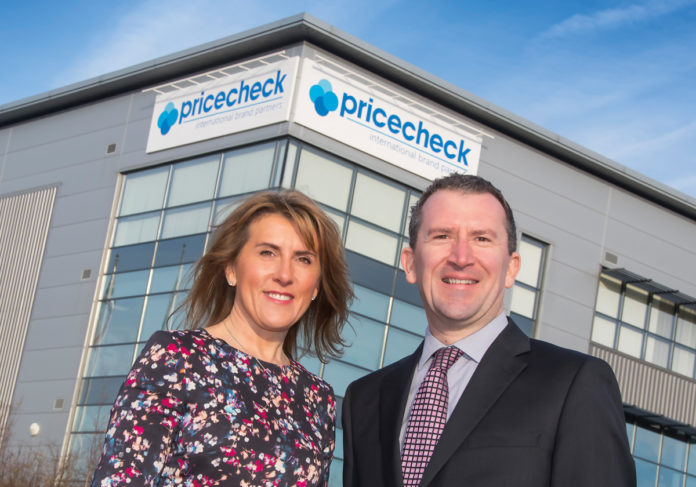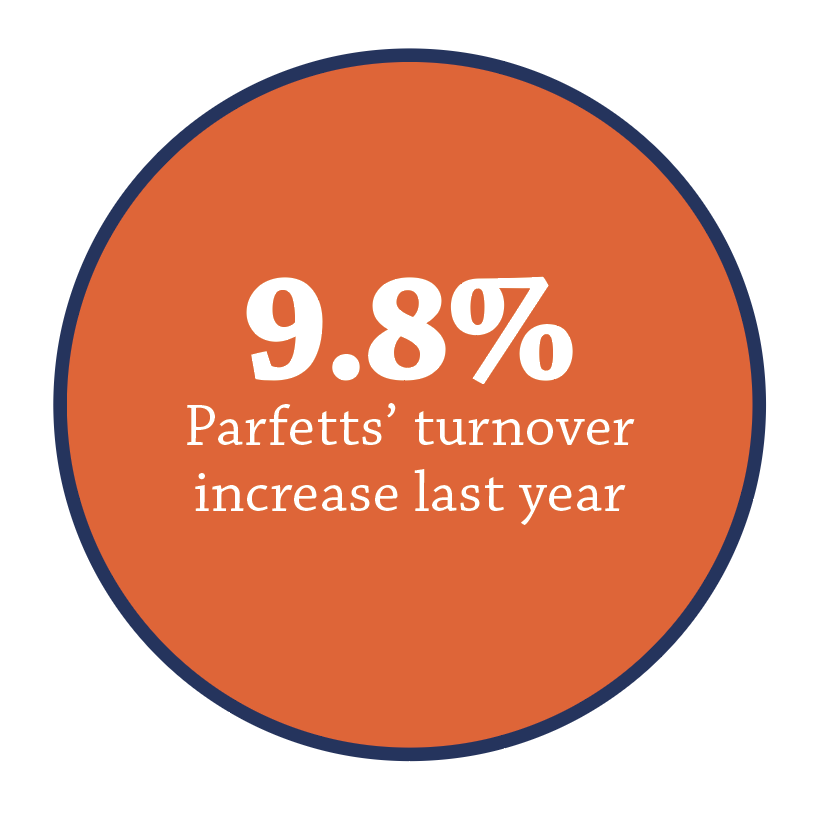
With the wholesale channel under increasing threat, Paul Hill looks at four innovative ways companies are diversifying their businesses which can help increase your profits in the process
The wholesale channel has never been more under threat. Whether it’s the impending danger of Amazon, the gradual entry into the sector of the multiples or the swarm of legislation, businesses are now being forced to re-evaluate their operations in order to survive. However, with these various incursion threats comes a multitude of innovate methods in which wholesalers are moving away from the term of simply being ‘box shifters’.
Explore the export market
At a time when the UK borders are a more divisive subject than ever, distributing abroad could be a profitable opportunity for certain wholesalers, providing the offer and service is done correctly.
Pricecheck has done exactly this and witnessed its export sales increase from £2m to £40m in the past 12 years, with the foreign market now accounting for 45% of its total turnover.

“We started to focus on exporting in 2008 after deciding that it would enable maximum growth for the business,” explains joint managing director Mark Lythe. “We identified target countries, we visited the territories, we attended exhibitions, we hired multilingual staff and we trained our international logistics team. Exporting is not an easy option, but it can be a game-changer if you get it right.”
Now exporting to 82 countries, it has become one of Pricecheck’s defining characteristics and allowed it to differentiate itself to suppliers, and last year, was named as a Northern Powerhouse Export Champion for 2019 by the Department for International Trade.
“Exporting isn’t for everyone, but if you have access to the right products and you’re willing to devote time and resources to the project, it can protect your business from the vagaries of the UK market and fuel rapid growth,” he adds.
Scottish wholesaler JW Filshill has also expanded into the export market in the form of its international division, which trades under the name Craft Beer Clan of Scotland. Initially set up to help alcohol producers penetrate the lucrative Asian market, the subsidiary is now one of the main export consolidators of Scottish craft beer and spirits, and currently trades in the UAE, China, South Korea, Taiwan and Japan.
“Our business model is collaborative and was established in 2014 to support and enable the smaller producers of craft beer and spirits en route to international markets,” explains JW Filshill managing director Simon Hannah.
Become employee-owned
Another method of differentiation is to make a company employee-owned. Parfetts is one business that has been hugely successful since doing this in 2008.
Joint managing director Greg Suszczenia says: “At the heart of the decision was a desire to build a sustainable company that was based on sound governance and engaged employees. Everyone in the business contributes to and plays their part in the strategy, and is rewarded with an annual dividend plus sales target bonus.”
The company holds ‘Voice Groups’ which give employees of all levels of the business input into both the operational and strategic direction of the company.
“Staff satisfaction is high and personal growth is supported. Ultimately, Parfetts success depends on its people, and by putting them at the centre of our model we are seeing consistently strong results,” adds Suszczenia, before revealing that the company had record growth in sales and profit in 2019.
“Turnover hit £380m, up 9.8% on the previous year’s figure, and pre-tax profits leapt 17.5% to £6.1m. Like-for-like sales, excluding our new Middlesbrough depot and cigarettes, grew 5%,” he says.
A tax-free (due to the company being employee-owned) sales bonus of 2% was then paid to all staff in July, with a second profit-share bonus distributed in October. “The fantastic result in sales and profitability came despite paying two bonuses to all staff as well as investing heavily in the business.
“Employee-ownership isn’t for every business or culture,” says Suszczenia, “but it suits Parfetts because of our strong shared culture and flat management structure. Everyone in the business understands the part they play in our shared success and knows they are only a phone call away from the senior management team.”
Elsewhere in the industry, Confex recently made each of its members shareholders in the buying group, with future profits made by head office shared among the membership according to their contribution to group turnover.
Yorkshire-based Suma also boasts a unique operational structure, functioning as a democratic, workers’ cooperative, where employees are ‘members’ and everyone is paid the same. As well as this, each member works on a rotational job pattern, collectively working across all areas of the operation.
 Embrace the digital revolution
Embrace the digital revolution
Although it may seem an obvious thing to do, not every wholesaler has yet to fully embrace the digital landscape. A recent study from insight business HIM showed that ordering through a phone app leads to a 18% increase in basket sizes.
“In terms of digital capabilities, wholesale is playing catch-up with other industries,” says its communications manager, Giorgio Rigali. “But wholesalers are starting to invest more into digital and are acknowledging how important it is to their business.”
JJ Foodservice is a leading pioneer of digital within wholesale. In 2009, it became the first of its kind to launch an online ordering portal that enabled customers to order via its website for collection or delivery. Within a year, online orders accounted for 30% of its sales.
Chief operating officer Mushtaque Ahmed says the website uses machine learning technology to predict basket items and make accurate, data-led recommendations on what customers are likely to purchase.
“These functions account for an average of 20% of basket spend. Predictive ordering is also available via the JJ App, which has been downloaded more than 25,000 times. Today, online orders have increased to 60%, and it’s still growing,” he adds.
Savona Foodservice is also exploring new technological boundaries and achieving growth in the process.
Group digital manager Jenny Squire explains that its digital platform is the first to use artificial intelligence specifically related to the foodservice wholesale sector.
“This enables customers to place orders quickly and easily from their desktop, laptop, tablet or mobile device. The site intelligently learns about customer interests, buying patterns and requirements as they use it more and more.”
She says: “Having tested the market, we realised that online plays a far bigger part in company growth, way beyond any other method of order processing. We are also mindful that many of our customers work in busy kitchens, placing orders direct from this area while stock checking.”
Savona’s Progressive Web App was created after recognising the value in data, machine learning and personalisation. “An off-the-shelf website was not going to give us the cutting-edge technology or help us stand out from the crowd. So, after much research and investment, Savona’s Progressive Web App was implemented,” Squire says.

Work within the community
Outside day-to-day operations of a wholesaler, working within the local community is another potential avenue to improve the business not only on an ethical level, but also from a financial standpoint.
Southampton-based Harvest works with various organisations including The Saints Foundation, which brings sport, well-being and education to schools and the local community.
“We are taking part in the big sleepout in March to help raise awareness and money to support the homeless in and around Southampton,” explains managing director Richard Strongman. “We also recently donated most of the food for Southampton City Catering to develop meal boxes for low-income families around Southampton.”
While Strongman doesn’t believe it is a duty to help the customer, he feels wholesalers need to set themselves up as partner to their customers by untraditional means. “Wholesalers who think of themselves as box movers will not last in the current competitive climate,” he says.
“You have to find your point of difference and give the customer a real sense of why they choose you. “It’s not enough to have the best price. Chefs are moving away more and more from best price and moving toward valuable partnerships with their food providers.”
Birchall Foodservice is also going the extra mile for its customers in the form of workshops to aid them with new dysphagia guidelines.
These informative events were set up following the implementation of the new International Dysphagia Diet Standardisation Initiative framework last year and provided practical help and advice for its care caterers.

Meanwhile, Bidfood’s Andy Kemp was recently given an MBE for his services not only to the industry, but also the wider community. “The role of foodservice has changed a huge amount over the years,” he says. “No longer does the industry exist simply to make and distribute food.
“We have a responsibility to work alongside government and consumers to challenge the norms of food consumption, and to enable change for good, whether that be for environmental, health or social benefit.”
A recent example of this was Kemp and Bidfood’s fight for the cause of Universal Free School Meals. “These are crucial to the health, well-being and attainment of so many of our school children, and there is a pressing need now to urge government to increase the allowance,” he says.
- Read more features and insight







